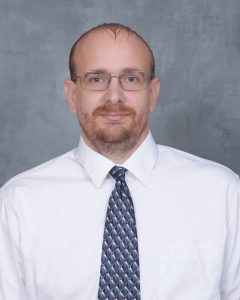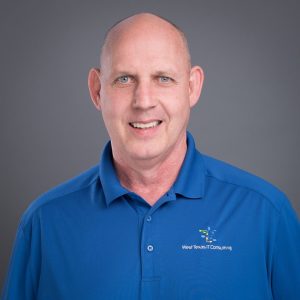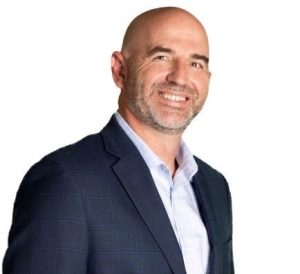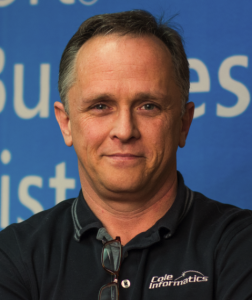To honor Veteran’s Day, ChannelPro profiled five MSP owners to learn about their backgrounds, philosophies, and how the military has shaped them as well as their businesses.
Timothy Cormier
President, Big IT Inc.

Timothy Cormier
BUSINESS DETAILS: Big IT is a full-service IT firm offering technological solutions to business problems in the greater Los Angeles area. The solo shop was founded in 2017. The two main business lines are traditional MSP services and application development.
Big IT has a heavy focus on cybersecurity but doesn’t step into the MSSP role, per Cormier. “We believe security needs to be the focus in all aspects of IT and we try to find clients that understand that.”
MILITARY SERVICE: Cormier in 1999 went into the U.S. Air Force Academy in Colorado Springs, CO, and served until June 2001. “The opportunity lost its luster after two years in.” It was “definitely tough mentally [leaving before 9/11] to know I wasn’t in the military any longer.” Highest rank was cadet. “It was an interesting time in the military. One of my primary mentors just counseled me to seriously consider what I wanted to do, and I decided after two years of service that I wanted to retire to the private sector.” Received his bachelor’s in business administration with an emphasis on information systems at Cal State Northridge, followed by a master’s in cybersecurity from Claremont Graduate University.
HOW MY SERVICE INFORMS HOW I RUN MY BUSINESS: “Going through basic training, you learn the camaraderie and dedication to fight through tough situations. I would say a lot of IT projects can be tough at times, so it takes some patience and perseverance.” Continuing education is important. He holds about 40 certificates on top of his master’s degree. “The academy is one of the top 10 universities [in the country]. It’s harder to get into than Harvard or Yale … In addition to academics, we had athletics and military training, so it was a very rigorous environment. They definitely instilled in us that education is important.”
John Brenner
President/Owner, West Texas IT Consulting

John Brenner
BUSINESS DETAILS: West Texas IT has three business models: full MSP services, break/fix, and penetration testing. 14 employees. Brenner has two degrees from Texas Tech University: international business and information systems. Then, he went to work as a programmer for a company in Scottsdale, AZ. Started West Texas IT in 2010. “I had no money and no clients, and this little old lady called me and took 15 of my cards.” She handed them out, and then, “about 60 little old ladies asked their husbands to [work with me].’’ From then on, it grew organically.
MILITARY SERVICE: Brenner joined the U.S. Navy in 1986, and became a storekeeper in 1987. Because he swam six hours a day in high school and college, he became a SAR (search and rescue) swimmer for the battleship battalion USS Wisconsin. Honorably discharged in 1994 as an E5 rank, petty officer second class. “A life of service is what I enjoy, and helping people with something I’m really good at is really rewarding. I plan to do this until I retire – and who knows when that will be.”
HOW MY SERVICE INFORMS HOW I RUN MY BUSINESS: Like any business, but particularly when you’re an MSP, “You have to know how to communicate. The Navy matured me but also taught me to communicate with pretty much anybody. I don’t care about blame and who’s at fault, I want to resolve the issue. I have the attitude, ‘Let’s get to a resolution.’ That’s helped me grow my business. It’s all about trust and communication.” The Navy also taught Brenner about ethics and his fellow man. “Everybody’s pretty much the same, and you need decency and respect from anyone you deal with.” Brenner believes in transparency and posts his rates online. He prides himself on being friends with other IT shops in his area, which he says is uncommon. “There’s plenty [of work] for everybody.”
Tommy Thornton
CEO, Automates

Tommy Thornton
BUSINESS DETAILS: Automates is a full-featured MSP, with a heavy focus on cybersecurity and being “ultra-responsive to clients.” In 2003, at 22 years old, Thornton started his first break/fix computer company in Georgia with his wife. “We were a very successful company, but I was absolutely killing myself.” In 2013, Thornton walked away from the business and moved to Southern California, where his wife is from. Reopened the business in 2014 as Automates, and now is approaching $2.5 million in sales. 15 employees.
MILITARY SERVICE: Served in the U.S. Marine Corps from 1997 to 2001. “I had an outstanding four years. It set me up for what I’m doing now.”
HOW MY SERVICE INFORMS HOW I RUN MY BUSINESS: Before the Marines, “I had no direction and lacked discipline.” He went to night school and picked up “any college course I could get,” with the intention of working on computers. “I was very fortunate; at a very early age, 12 or 13, I knew I wanted to be a computer guy.” Grew up in rural South Georgia. “There was not a lot of tech in a rural farm town, so I had to escape to get the education I was looking for. I used the Marine Corps as much as they used me.” Learned four key things. The first is discipline. “I’m the first one in the office and the last to leave. I wake up at 5 a.m., and I’m working by 6 a.m.” The other things he learned were leadership, integrity, and management, all of which were important tenets of being a Marine. “Doing the right thing when no one is looking is what the Marine Corps really drives home. We’re very transparent and open and honest.” Received multiple meritorious promotions and managed several troops. “I was a sergeant within two and a half years. With that comes a lot of responsibility and management skills. I owe where I am today in large part to the Marine Corps.”
Patrick Cash
Partner, Bluestor Network

Patrick Cash
BUSINESS DETAILS: Alpharetta, GA-based Bluestor Network is a traditional MSP, providing cloud, remote backup, disaster recovery, and onsite services in metro Atlanta and the southeast area. Founded in 2005. Seven employees.
MILITARY SERVICE: Served as an Air Force senior airman from 1994 to 1999. Got his technical background while serving as a computer operator/network administrator. Received a medical discharge due to a service-connected disability. “The military, unfortunately, when you don’t fit the mold, they’re quick to make a change.”
HOW MY SERVICE INFORMS HOW I RUN MY BUSINESS: “Certainly, discipline comes to mind. There is also the willingness to get the job done, and teamwork is involved. All three are great components in building a successful MSP.” Learned how to pivot, which came in handy during COVID-19. “When your model is built a specific way and a rapid change comes about, being able to adjust is a key factor.” Having business relationships helped in sourcing products for clients when some products were not available. His advice: Don’t be afraid to work with other service providers. “We have numerous partnerships with other MSPs that I’ve known for years, and we knowledge share. It’s like a big peer group.” It’s important to build a network of resources. “If you’ve got brothers and sisters you served with, you’ve got a great pool of resources there who would be ready, willing, and able to step in and help.” Sits on the board of Colorado nonprofit Project Sanctuary, which works with veterans and their families. “Veterans will always and forever look out for other veterans.”
Terry Cole
Founder, Cole Informatics LLC

Terry Cole
BUSINESS DETAILS: Cole Informatics is a provider of information technology and telecommunications consulting, design, and management services to small businesses and local government agencies throughout Tennessee and the U.S. Southeast since 2003. Solo practitioner. “I’m on the downhill side of my practice and am looking to retire in the next five years.” Monthly, he gets “five to six offers easily,” to sell the business, but his intention is to sunset it. Generalist IT shop for very small businesses. “My largest customer is 45 users. The majority are less than 10. We provide everything they might need for IT on a contract basis.” That includes procurement of tech products. “Whatever they need. If it touches the network, it’s something they come to me for. I don’t present myself as a security expert. If someone is interested in that, we’ll bring in an MSSP. My clients don’t have the budget or interest in taking it that far.” Has had as many as nine employees in the past.
MILITARY SERVICE: Served in the Navy from 1991 to 1995. Enlisted during the first Gulf War, but it ended while he was in boot camp, so he didn’t get to experience it firsthand. Served as a petty officer second class. “I thought there was a better life out there. In retrospect, I probably would have stayed,” but at the time, he was ready to get out. He lived in South Carolina, but his wife wanted to move back to Tennessee, where she was from. Had Cole stayed, the next move would have been at sea. “I wasn’t interested in that. I was shore-based my entire career.” His position was opticalman, working on a variety of machinery with lenses. Self-taught in technology. He never went to school for a tech degree; it’s something he has always done and had an affinity for. Bought a used computer while in the military, and taught himself how to work on databases and desktop publishing.
HOW MY SERVICE INFORMS HOW I RUN MY BUSINESS: “If there’s any attribute that would be consistent in a successful military career or in IT, it is exceptional attention to detail. Details matter.” Has seen very little of this attribute in IT. “I’ve worked with other IT companies over the years, and the disconnect on attention to detail is very stark.” Teamwork is also important. “The majority of my military career, I had jobs that didn’t necessarily require me to work with others, believe it or not. I was responsible for an objective and delivering on it probably 75% of my time.” That became a struggle running an MSP practice, “because I kept everything between my ears … I still struggle with working in a team environment.” Believes his IT career “might have been different in a positive way if I knew earlier how to work with others sooner.” That didn’t extend to working with customers — that was never a problem. “I always had the ability to recall details and have a weird photographic memory.” Began to focus on client documentation, detailing information like what and when was the last work a technician did on a particular computer. “So, ensuring the documentation was done in a meaningful way for whoever would read it next. That’s critical for running an MSP business.”
Image: iStock













